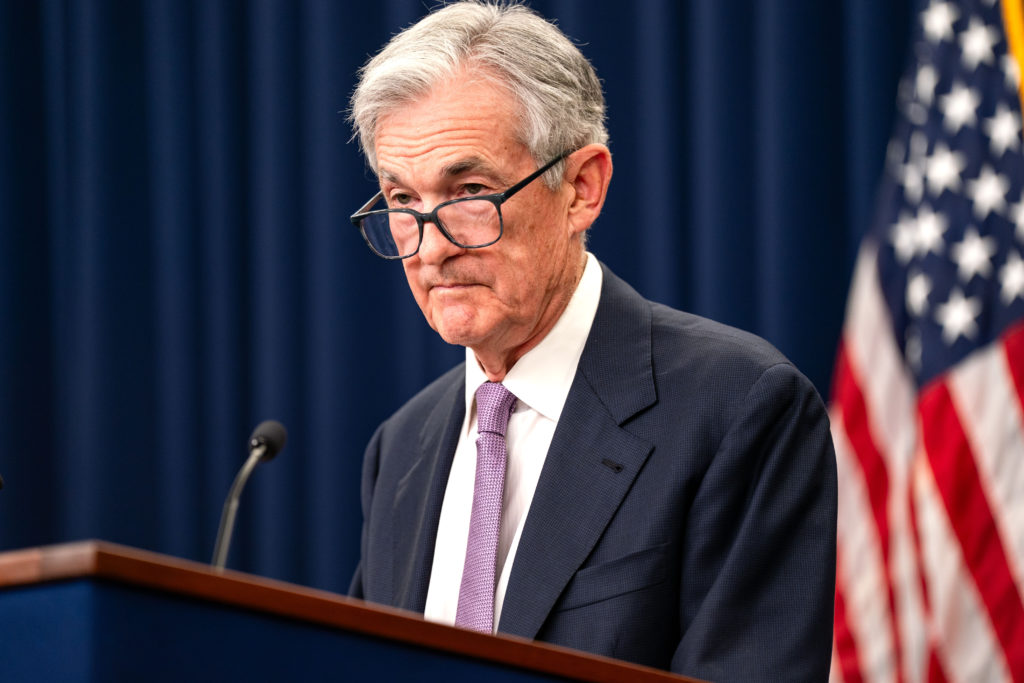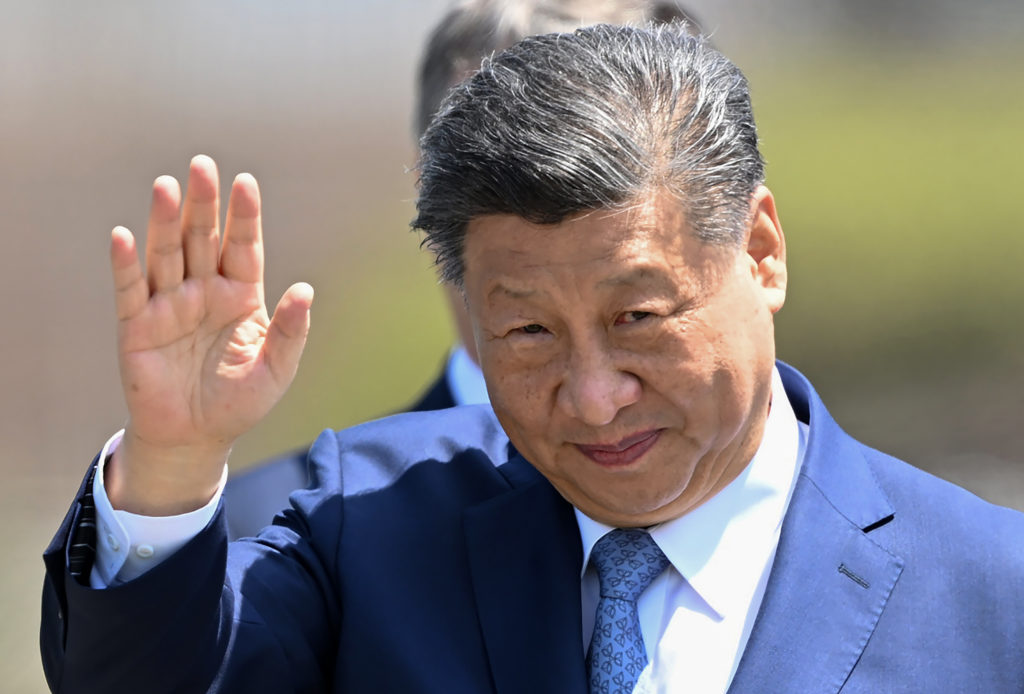Hong Kong was one of the biggest losers in Asia as markets reversed course after the Fed indicated interest rates would go higher than expected
Global stocks sank Thursday and the dollar rose after the US Federal Reserve hiked interest rates again and signalled they would go higher to fight inflation.
Markets were also on tenterhooks ahead of expected rate increases from the Bank of England and the European Central Bank.
Both are expected to mirror the Fed’s half-point hike to tackle soaring inflation, after rate increases also in Norway and Switzerland.
Sentiment was hammered Thursday after the Fed suggested that it saw US rates topping out next year at 5.1 percent, higher than markets had predicted.
“Equity markets are back in the red… as investors reel from the nasty shock delivered by the Fed and look ahead to central bank rate decisions on the agenda today,” said Oanda analyst Craig Erlam.
“The question now becomes whether other central banks will take a similarly hawkish position against the markets and ruin any hope of a Santa rally this year.”
The Fed also warned that the world’s biggest economy would grow less than expected next year, fuelling fresh recession fears.
Rising rates fan recession concerns because they push up loan repayments for consumers and companies, denting expenditure, investment and economic activity.
At the same time, however, the world’s major central banks are seeking to dampen red-hot inflation, which has been fuelled partly by fallout from Russia’s invasion of Ukraine.
Recent official data painted a picture of slowing inflation in Britain and the United States, although consumer prices remain elevated.
“The interest rate hikes keep on coming and this trend is almost certainly going to remain intact in early 2023,” noted AJ Bell investment director Russ Mould.
“Raising rates makes it more expensive for consumers and businesses to borrow money and theoretically causes a reduction in spending and investment which should help to ease the economy and bring down prices.
“This takes time to work its way through the system and so central banks will continue their rate hiking path until there is adequate evidence to support a shift in policy.”
Markets had rallied earlier this week after data showed the US consumer price index rose less than forecast in November, marking a fifth straight slowdown and the lowest level since December last year.
But the Fed appeared less inclined to accept that the recent figures were enough to indicate enough progress was being made.
“Fifty basis points is still a historically large increase, and we still have some ways to go,” Fed boss Jerome Powell told reporters after the announcement.
Oil prices rose on lingering concerns over slowing global energy demand, dealers said.
– Key figures around 1120 GMT –
London – FTSE 100: DOWN 0.4 percent at 7,468.62 points
Frankfurt – DAX: DOWN 1.1 percent at 14,295.23
Paris – CAC 40: DOWN 1.1 percent at 6,655.77
EURO STOXX 50: DOWN 1.2 percent at 3,926.88
Tokyo – Nikkei 225: DOWN 0.4 percent at 28,051.70 (close)
Hong Kong – Hang Seng Index: DOWN 1.6 percent at 19,368.59 (close)
Shanghai – Composite: DOWN 0.3 percent at 3,168.65 (close)
New York – Dow: DOWN 0.4 percent at 33,966.35 (close)
Euro/dollar: DOWN at $1.0614 from $1.0684 on Wednesday
Dollar/yen: UP at 136.76 yen from 135.45 yen
Pound/dollar: DOWN at $1.2343 from $1.2424
Euro/pound: UP at 86.02 pence from 85.96 pence
Brent North Sea crude: UP 0.4 percent at $83.06 per barrel
West Texas Intermediate: UP 0.4 percent at $77.55 per barrel
burs/rfj/bcp/raz










